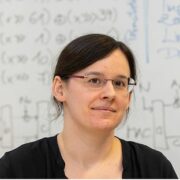New strategic partnership among Austrian experts for trustworthy and secure AI applications.
In Styria a new initiative is emerging to develop efficient and independent test methods and testing technologies for AI systems. This involves the Know-Center, a leading European research center for Data-driven business and AI, the SGS Group, the world’s leading provider of testing, verification and certification and the Institute for Information Processing and Communication Technology of Graz University of Technology, one of the leading cybersecurity research teams. Ethical and legal aspects are introduced via the Business Analytics and Data Science Center at University of Graz and Austria’s Center for Secure Information Technology (A-SIT) accompanies the activities as a neutral observer.
Trust as prerequisite for AI applications
“The potential of AI in Europe will only be exploited if the trustworthiness of data handling as well as fair, reliable and secure algorithms can be demonstrated. With a 360° perspective, we want to ensure that AI applications function in a technically compliant, reliable and unbiased manner. The focus is on all areas that are essential for the high quality and trustworthiness of AI: data, algorithms, cybersecurity, processes, ethics and law”, explains Stefanie Lindstaedt, CEO of the Know-Center.
Barbara Eibinger-Miedl, Provincial Councilor of Economic Affairs and Research welcomes the initiative: “Trustworthy AI systems and a high level of data protection are essential to reduce barriers when it comes to the use of AI applications. We are pleased the global corporation SGS is relying on Styrian know-how in this regard, which is a confirmation of the excellent work provided by the stakeholders involved. In Styria we have succeeded in building up comprehensive competencies in this field and have taken on a global pioneering role by numerous research projects and digitization initiatives.”
Independent testing and certification of AI solutions
Currently, AI is one of the fastest growing topics. Most AI systems are data-driven, that is, they learn about desired behaviors from large amounts of data. This cutting-edge technology enables extraordinary innovation but, if not used properly, can have unintentional, negative effects, for example biases in human resource processes or unsafe recommendations by AI in the critical healthcare sector.
“A cornerstone of trust in AI is compliance with standards and regulations, demonstrated through conformity assessments, carried out by accredited third parties like SGS. In our partnership, we will develop new multi-disciplinary tools and techniques to enable these assessments, to include cybersecurity, safety and ethics as examples,” explains Siddi Wouters, Senior Vice President of Digital & Innovation at SGS, “which brings value to customers across the world.”
Cybercrime – a major challenge
Despite the enormous technological potential, the use of AI applications also involves uncertainties and risks. There are a variety of ways to attack AI systems. A major challenge in the evaluation of AI systems is therefore cybercrime. For example, a driverless vehicle could make fatal decisions if data processed by the AI system used in the vehicle is wrongly programmed by criminals.
“At this point conventional static testing is not sufficient. Research in terms of fundamentally new safety engineering concepts is needed to obtain continuous attestation of AI system’s resilience against cyberattacks. TU Graz introduces its expertise to the strategic partnership. For us, the initiative represents the logical deepening of an already successfully existing cooperation in the field of computer science, software engineering and cybersecurity with SGS, Know-Center and the University of Graz. In addition, it will benefit university research and teaching, which the new and current content will incorporate,” explains Harald Kainz, Rector of Graz University of Technology.
Increasing acceptance of AI applications
Despite increasing AI applications across all sectors of industry in recent years, companies are still feeling uncertain when it comes to data protection and legal requirements. The regulation on AI intended by the European Union could induce additional overburdening for companies and reduce or even prevent the adding value of AI. Overall, missing auditing certificates are one major barrier for AI adoption and reducing business potentials.
“Missing auditing procedures are one of the major adoption barriers for AI. It is not only a legal or compliance prerequisite it also leads to confidence-building and positively influences societal acceptance. Our studies in recruiting, e.g. show that people who are feeling discriminated, are most likely to prefer the assessment of their qualifications by AI in contrast to human recruiters. It particularly applies if carried out by certified AI applications with an explainability component,” Stefan Thalmann, Head of Business Analytics and Data Science Center at University Graz, states.
Herbert Leitold, Secretary General A-SIT also emphasizes: “The complex challenges of AI certification will be easier to accomplish by bundling a variety of expertise. Austria is on the right track by presenting providers and users of AI application with better orientation and certainty in regards to the quality of applications.”
Cooperation with further partners
Energie Steiermark AG, Leftshift One, NXP and Redwave will participate with use cases. The initiative is open to further partners from industry and science who are interested in working together on AI testing methods. Know-Center’s extensive international partner network also ensures cutting edge research, testing tools and the continuous further development of methods.
More information about the initiative: http://sichere-ki.at/en









